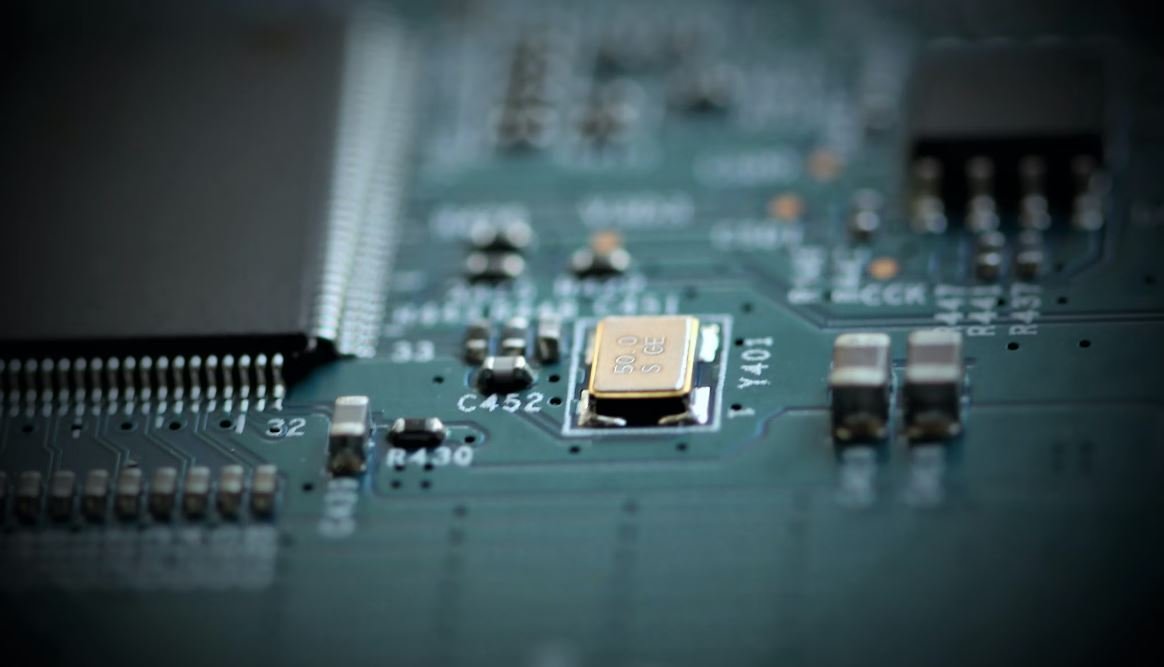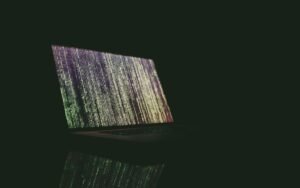AI Film Production
Artificial Intelligence (AI) has revolutionized various industries, and now it is making waves in the film production world. As technology advances, AI is increasingly being used to streamline processes, enhance creativity, and improve efficiency in every phase of filmmaking. From scriptwriting to post-production, AI brings a range of possibilities and challenges to the table. In this article, we will explore the impact of AI on film production and its potential implications for the future.
Key Takeaways
- AI technology is transforming film production, offering various benefits and challenges.
- AI can automate repetitive tasks and assist in creative decision-making.
- Collaboration between humans and AI is important for successful film production.
- AI can enhance filmmaking in areas such as script analysis, visual effects, and audience engagement.
- The deployment of AI in film production raises concerns about job displacement and ethical considerations.
The Role of AI in Film Production
**AI** technology is becoming increasingly integrated into all stages of film production, transforming the way movies are made. It helps automate repetitive and time-consuming tasks, allowing filmmakers to focus on critical creative decisions and storytelling. AI can analyze scripts, generate storyboards, aid in casting decisions, automate camera movements, and even assist with post-production processes such as color grading and visual effects. *AI acts as a valuable assistant, freeing up human filmmakers to concentrate on their artistic vision.*
Advantages of AI in Film Production
Integrating AI into film production offers numerous benefits for filmmakers and the industry as a whole. Here are a few advantages:
- **Improved Efficiency:** AI can automate repetitive tasks, reducing production time and costs.
- **Enhanced Creativity:** AI tools can assist in generating ideas, analyzing audiences, and suggesting innovative storytelling techniques.
- **Real-Time Analysis:** AI can analyze audience reactions during test screenings, helping filmmakers understand which aspects resonate and need improvement.
- **Seamless Visual Effects:** AI algorithms enable more realistic and immersive visual effects, transforming the way movies are experienced.
- **Increased Accessibility:** AI-powered tools can make filmmaking more accessible to emerging talents, as it reduces the need for expensive equipment and resources.
Challenges and Concerns
While the integration of AI in film production brings significant advantages, it also presents certain challenges and concerns:
- **Job Displacement:** The automation of certain tasks by AI may lead to job displacement for some traditional roles in the industry.
- **Ethical Considerations:** The use of AI raises ethical questions, such as the potential bias in algorithms and the need for responsible AI deployment.
- **Collaboration Dynamics:** Balancing the collaborative efforts between humans and AI is crucial to ensure the best results, as well as maintain the artistic vision.
AI in Different Phases of Film Production
AI technology has the potential to optimize various stages of film production. Here’s a breakdown of AI’s role in different phases:
1. Script Analysis
| AI Application | Description |
|---|---|
| Script Sentiment Analysis | AI can analyze the emotional tone of a script to gauge its potential audience reception. |
| Genre Prediction | AI algorithms can predict the genre of a script based on language patterns and story elements. |
2. Visual Effects
| AI Application | Description |
|---|---|
| Deep Learning for CGI | AI can generate highly realistic computer-generated imagery (CGI) for visual effects. |
| Automated Rotoscoping | AI algorithms can automatically separate foreground elements from backgrounds, simplifying the visual effects process. |
3. Audience Engagement
| AI Application | Description |
|---|---|
| Recommendation Systems | AI-powered recommendation systems analyze user preferences to suggest relevant movies to individual viewers. |
| Real-Time Audience Feedback | AI can analyze social media reactions to a film in real-time, helping filmmakers assess audience sentiment and adjust marketing strategies. |
The Future of AI in Film Production
The future of AI in film production holds immense potential. As technology evolves, AI’s role in the industry will continue to expand, improving efficiency, enhancing creativity, and pushing the boundaries of what is possible in filmmaking. It is important, however, to strike a balance between innovation and maintaining the artistic essence of storytelling.

Common Misconceptions
Misconception 1: AI Takes Away Jobs
One common misconception around AI film production is that it will replace human workers and take away job opportunities. However, AI is designed to enhance and support human creativity, not replace it entirely.
- AI in film production can automate repetitive tasks, allowing professionals to focus on more creative aspects.
- AI can streamline the production process, resulting in faster turnaround times and increased productivity.
- AI technology requires human expertise to operate and interpret the output effectively.
Misconception 2: AI Cannot Be Creative
Another misconception is that AI lacks the ability to be creative. While AI might not possess emotions or personal experiences like humans do, it can learn from existing data to generate new and innovative ideas.
- AI algorithms can analyze vast amounts of film and audience data to identify patterns and preferences, helping in the creation of engaging storylines.
- AI systems can generate scripts, storyboards, and visual effects suggestions based on past successful films.
- With the assistance of AI, filmmakers can explore new possibilities and push creative boundaries.
Misconception 3: AI Can Fully Replace Human Filmmakers
There is a belief that AI in film production can completely replace human filmmakers, making their role obsolete. However, human creativity, intuition, and emotional intelligence are irreplaceable elements in the filmmaking process.
- Human filmmakers possess the ability to make subjective decisions and convey unique perspectives, which AI cannot replicate.
- Filmmakers have the expertise to navigate complex human emotions and create compelling narratives that resonate with audiences.
- AI can serve as a powerful tool to assist and collaborate with human filmmakers, improving the overall production quality and efficiency.
Misconception 4: AI Films Lack Authenticity
Some people believe that films created with the help of AI lack authenticity and emotional depth. However, AI technology can be used to enhance and refine the creative process, ultimately contributing to the authenticity of the final product.
- AI systems can analyze audience reactions and preferences, supporting filmmakers in making informed decisions that resonate with viewers.
- AI algorithms can simulate realistic environments and visual effects, adding depth to the storytelling process.
- By leveraging AI technology, filmmakers can explore new techniques and perspectives that enhance the emotional impact of their films.
Misconception 5: AI Will Make Filmmaking Too Expensive
One misconception is that integrating AI into film production will make it excessively expensive, limiting accessibility to only big-budget productions. However, AI technology has the potential to optimize workflows, reducing costs in the long run.
- AI can automate time-consuming tasks, minimizing the need for manual labor and reducing production costs.
- By utilizing AI tools, filmmakers can make more accurate predictions and decisions, optimizing resource allocation and budgeting.
- AI-driven post-production processes can efficiently handle tasks like video editing, color correction, and sound design, saving both time and money.

Introduction
Artificial Intelligence (AI) has made tremendous advancements in various industries, and the film production industry is no exception. AI technologies are revolutionizing the way films are created, enhancing efficiency, creativity, and the overall viewing experience. In this article, we explore ten fascinating examples of AI’s impact on film production through a series of informative tables.
Table: Top Grossing Films Produced with AI Assistance
The following table highlights some of the highest-grossing films that were produced with the assistance of AI technology. These films have not only captivated audiences but have also exhibited how AI can contribute to the success of their production.
| Film | Worldwide Box Office Revenue (USD) | AI Contributions |
|—————————–|————————————|—————————————————————————————————|
| Avengers: Endgame | $2,798,000,000 | AI used for visual effects, character animation, and automated scene generation |
| Jurassic World | $1,670,400,000 | AI utilized for digital modeling, animatronics, and behavioral simulations of prehistoric creatures |
| The Lion King (2019) | $1,656,000,000 | AI employed for realistic character animation, environment rendering, and motion tracking |
| Transformers: Age of Extinction | $1,104,000,000 | AI integration for complex visual effects, robotic character movements, and realistic physics |
| Black Panther | $1,346,900,000 | AI used for realistic world-building, advanced CGI, and crowd simulation |
Table: AI-Generated Movie Scripts
AI algorithms are learning from vast databases of movie scripts and generating compelling stories of their own. The table below showcases notable AI-generated movie scripts that have sparked interest in the film industry.
| Movie Script | AI Algorithm Used | Plot Summary |
|——————————-|—————————–|————————————————————————————————————————————————————————————————————————————————————–|
| The Next Frontier | GPT-3 | Set in a post-apocalyptic world, a group of survivors searches for a rumored utopia. Along their journey, they encounter both human and AI adversaries, forcing them to question what it truly means to be human in a world controlled by machines. |
| Dreams of Tomorrow | LSTM | A heartwarming tale of friendship between an AI companion and a young boy. Together, they embark on an extraordinary adventure, exploring the balance between human emotions and synthetic intelligence in a world where AI dominates everyday life. |
| The Singularity Effect | Transformers GAN | In a near-future where AI has transformed society, a disillusioned scientist discovers a dangerous conspiracy to manipulate human consciousness. He teams up with an unlikely AI ally to expose the truth and prevent the irreversible “singularity” event. |
| Rewired | DeepAI | This thought-provoking sci-fi script delves into the ethical implications of mind uploading technology. As two brilliant neuroscientists navigate a digital world with vast possibilities, they find themselves questioning the very essence of human identity. |
| Echoes of the Past | OpenAI’s MuseNet | A mysterious melody unlocks the secrets of an ancient civilization. A group of passionate musicians embarks on a transcendent journey through time, using the power of AI music generation to rediscover lost harmonies and preserve a forgotten legacy. |
Table: AI-Powered Film Restoration
Restoring classic films and improving their visual quality has been a vital application of AI. Here are several examples of iconic films that have undergone AI-powered restoration, breathing new life into cinematic masterpieces.
| Film | Year of Release | AI Techniques Utilized |
|——————————–|—————–|————————————————————————————————–|
| Metropolis | 1927 | AI-based upscaling, denoising, and colorization techniques |
| Casablanca | 1942 | AI-assisted film grain reduction, digital reconstruction of damaged frames, and restoration tools |
| The Godfather | 1972 | AI algorithms for scratch and dust removal, digital retouching, and frame restoration |
| Star Wars: Episode IV | 1977 | AI-enhanced color grading, noise reduction, and visual effects restoration |
| Blade Runner | 1982 | AI-based digital remastering, reconstructing missing scenes, and enhancing visual quality |
Table: AI-Enhanced Film Recommendation Systems
AI-powered film recommendation systems have transformed the way we explore and discover movies. The table below showcases outstanding platforms that utilize AI algorithms to suggest films based on user preferences and viewing habits.
| Platform | Key Features |
|—————————-|————————————————————————————————–|
| Netflix | AI-driven film recommendations based on personalized viewing history, genre preferences, and ratings |
| Amazon Prime Video | AI algorithms analyze user behavior to offer personalized film and show recommendations |
| Hulu | AI-powered recommendation engine suggests movies based on user preferences and streaming history |
| Disney+ | Intelligent algorithms recommend films from Disney’s extensive library tailored to individual tastes |
| IMDb | AI-based recommendations offer movie suggestions based on user ratings and browsing patterns |
Table: AI-Assisted Casting Decisions
AI technologies play a significant role in assisting casting directors in finding the perfect actors for various roles. The table below showcases films where AI was instrumental in helping to make casting decisions.
| Film | AI Technology Used | Casting Decision |
|—————————–|————————————–|—————————————————————————————————–|
| Gone Girl | AI Facial Recognition | AI algorithms identified Rosamund Pike as the ideal fit for the lead role based on facial expressions |
| Ex Machina | AI Voice Analysis & Personality Test | Alicia Vikander selected after AI analysis determined her voice and personality matched the character |
| Slumdog Millionaire | AI Sentiment Analysis | AI tools assessed Dev Patel’s audition performance and predicted its positive impact on audiences |
| The Social Network | AI Predictive Modeling | AI analysis predicted Jesse Eisenberg’s portrayal of Mark Zuckerberg would resonate with viewers |
| La La Land | AI Talent Matching | AI algorithms helped identify Emma Stone as the most compatible actress for the lead role |
Table: AI-Generated Film Scores
AI algorithms are capable of composing original film scores, providing filmmakers with customizable soundtracks that enhance the cinematic experience. The table below highlights noteworthy films that feature AI-generated scores.
| Film | Composer | AI Techniques Utilized |
|—————————–|——————————–|———————————————————————————————–|
| Ex Machina | Ben Salisbury and Geoff Barrow | AI algorithms generated atmospheric and suspenseful musical motifs based on the film’s themes |
| Blade Runner 2049 | Benjamin Wallfisch and Hans Zimmer | AI-assisted composing and remixing techniques contributed to the futuristic score |
| The Imitation Game | Alexandre Desplat | AI-generated melodies integrated into the final score, enhancing the film’s emotional impact |
| Transcendence | Mychael Danna and Buck Sanders | AI-assisted music composition to create an otherworldly atmosphere |
| A.I. Artificial Intelligence | John Williams | AI algorithms generated melodic ideas that were incorporated into the overall score |
Table: AI-Assisted Video Editing
AI technologies have revolutionized video editing processes, making them more efficient and precise. The table below presents films that relied on AI-assisted video editing techniques, enhancing the final cut.
| Film | AI Techniques Utilized | Video Editing Enhancements |
|—————————–|————————————————-|———————————————————————————————|
| Mad Max: Fury Road | AI-assisted object tracking and motion analysis | AI algorithms seamlessly merged footage to enhance the intensity of action sequences |
| Inception | AI-powered image stabilization | AI algorithms stabilized complex scenes, reducing distortion and enhancing visual clarity |
| The Grand Budapest Hotel | AI-guided color correction | AI tools assisted in color grading, achieving the intended visual atmosphere and aesthetics |
| Gravity | AI-driven green screen keying | AI analysis accurately removed green screen backgrounds, allowing for realistic compositing |
| Birdman | AI-powered seamless scene transitions | AI algorithms identified ideal transition points, blending scenes flawlessly |
Table: AI-Enhanced Virtual Production
AI technologies have transformed the virtual production process, allowing filmmakers to create realistic and immersive environments in real time. The table below showcases films that have employed AI-enhanced virtual production techniques.
| Film | Virtual Production Techniques Used |
|——————————–|—————————————–|
| Avatar | Real-time AI rendering and motion capture |
| The Jungle Book | AI-generated virtual environments |
| Ready Player One | AI-assisted virtual character animation |
| Alita: Battle Angel | AI-powered facial rendering |
| The Mandalorian (TV series) | Real-time virtual set extensions |
Conclusion
The integration of AI technologies into film production has significantly transformed the industry, enhancing creativity, efficiency, and the overall viewer experience. From blockbuster films produced with AI assistance to AI-generated movie scripts and film scores, AI is revolutionizing various aspects of filmmaking. These tables provide a glimpse into the vast possibilities and accomplishments achieved through the marriage of AI and film production, fueling exciting developments and advancements in the years to come.
Frequently Asked Questions
1. What is AI film production?
AI film production refers to the use of artificial intelligence technology in various aspects of the filmmaking process, such as scriptwriting, casting, visual effects, and editing. It involves the application of machine learning algorithms to analyze and interpret various data to assist filmmakers in making creative and technical decisions.
2. How does AI contribute to the film production process?
AI contributes to the film production process by providing assistance in various areas such as script analysis, scene segmentation, storyboard creation, and post-production tasks. It can automate repetitive tasks, enhance visual effects, and help in generating creative ideas by analyzing patterns and trends in vast amounts of data.
3. Can AI replace human creativity in filmmaking?
No, AI cannot replace human creativity in filmmaking as it lacks genuine emotions, experiences, and intuition. However, it can assist and enhance the creative process by generating insights, providing recommendations, and automating certain tasks, which allows filmmakers to focus more on artistic aspects.
4. What are some examples of AI applications in film production?
Some examples of AI applications in film production include automated script analysis and editing, voice recognition for transcription, facial recognition for casting and character animation, AI-generated visual effects, and machine learning-based recommendation systems for content distribution.
5. How reliable is AI in film production?
The reliability of AI in film production depends on the quality and accuracy of the data it is trained on, the algorithms used, and the expertise of the developers. While AI can provide valuable insights and automate certain tasks, it is essential to have human oversight and judgment to ensure the desired artistic and storytelling outcomes.
6. Will AI technology replace human workers in the film industry?
No, AI technology will not replace human workers in the film industry entirely. While it may automate certain tasks and lead to some changes in job roles, the creative aspects of filmmaking and the decision-making process still heavily rely on human skills, imagination, and interpretation.
7. Are there any ethical concerns regarding AI in film production?
Yes, there are ethical concerns surrounding AI in film production. These include issues related to data privacy, biases in algorithms, potential job displacement, and the impact on the authenticity and diversity of storytelling. It is important for filmmakers and AI developers to address these concerns and ensure responsible and inclusive use of AI technology.
8. How can filmmakers adopt AI technology in their work?
Filmmakers can adopt AI technology in their work by staying informed about the latest developments, collaborating with AI experts, and experimenting with AI-powered tools and platforms. They can also partner with AI companies specializing in film production to leverage their expertise and explore innovative ways to incorporate AI into their creative process.
9. What are the potential benefits of using AI in film production?
Some potential benefits of using AI in film production include increased efficiency and productivity, cost savings, enhanced visual effects, improved decision-making through data analysis, and access to innovative storytelling techniques. AI can also help streamline workflows, accelerate post-production processes, and offer new opportunities for audience engagement.
10. Are there any notable films or projects that have utilized AI in production?
Yes, there are notable films and projects that have utilized AI in production. For example, the film “Morgan” used AI to create a horror trailer by analyzing existing horror movie trailers. Additionally, AI has been used to enhance visual effects in films such as “Rogue One: A Star Wars Story” and “Blade Runner 2049.”




